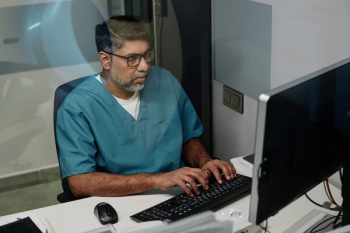
Do You Learn Your Lessons?
When you look back on your career, do you take the time to focus on the lesson learned?
Medicine tends to organize itself into multi-year chapters: four years each in college and medschool, four years of rad-residency in my case (up that to six if you choose to include intern and fellowship years), a 4-year purported partnership track, etc.
The mind likes to organize things, attributing themes and deeper meanings to them. Even if one does not subscribe to the spiritual notion that “things happen for a reason,” it can simply be a matter of self-reflection: What did I get out of that 4-year stint? How did I grow from it? What lessons did I learn?
Related article:
The answers are much easier when those chapters get further into the past. I have a friend who likes to ask “What did you learn” about the preceding year every time someone has a birthday-which can be a challenging query, because you’ve literally just emerged from the year in question.
By contrast, I have little difficulty coming up with key lessons-learned for events a decade or three ago. As such things come into retrospective clarity, it sometimes stands out that the lessons seem to contradict one another.
For instance, one of my discoveries in the later years of high school was that it’s pretty easy to make yourself miserable if you focus too much on your responsibilities (which at that age would be grades earned in classes, scores achieved on exams, etc. Now, it would refer to performance at a job). Relaxing a bit-unclenching if you will-allows for more actual living of life.
The next chapter, college, had a harsher lesson in response: Relax and enjoy too much, and success won’t necessarily come your way. Since I was accustomed to easily getting top grades in public school, I didn’t apply myself anywhere near as much as I should have while attending my Ivy League undergrad classes. As a result, my grades were decidedly mediocre.
So once again, the next lesson was something of a reversal, as I didn’t do well in the hypercompetitive medschool-application world, and went “offshore.” The subsequent years held the lesson that, yes, it will take self-discipline and more than a little effort, but you can indeed climb back into the competitive ranks (thanks, USMLE! You were a most helpful yardstick).
At least some of these lessons, therefore, seem to be a zig-zagging path between extremes. The “happy medium” being somewhere in the middle, one hopefully gravitates towards a more straight-and-narrow path for an optimal life. And, just as successive lessons might be at odds with one another, those separated by one or more links in the lesson-chain might seem to be reiterations. Not so much learning a new lesson as it is about refreshing, or fine-tuning, an old one.
Related article:
I have been out of education and training for nigh unto 14 years; the time spent working as an attending radiologist will soon exceed that which I spent learning to be one. The balance of lessons learned is, therefore, also beginning to shift. A perusal of my previous columns will surely give an insight into what some of those lessons have been.
One might hope, or at least wish, with accumulating years and associated wisdom, that it would become easier to identify the lessons one is learning, or needing to learn, before multiple years have subsequently passed. Strangely, it seems that most folks do the exact opposite: Become more set in their ways, convinced that they have learned what they need to, and increasingly resist evidence to the contrary.
Newsletter
Stay at the forefront of radiology with the Diagnostic Imaging newsletter, delivering the latest news, clinical insights, and imaging advancements for today’s radiologists.












